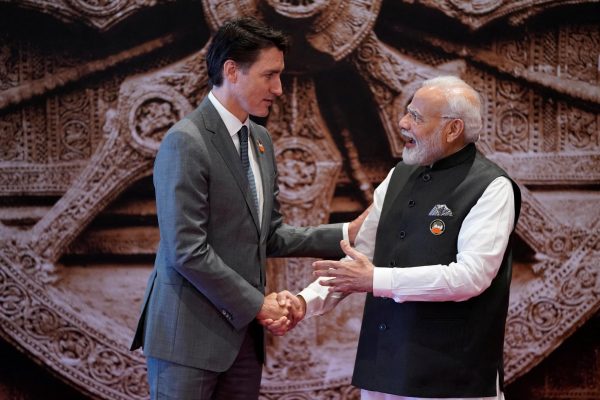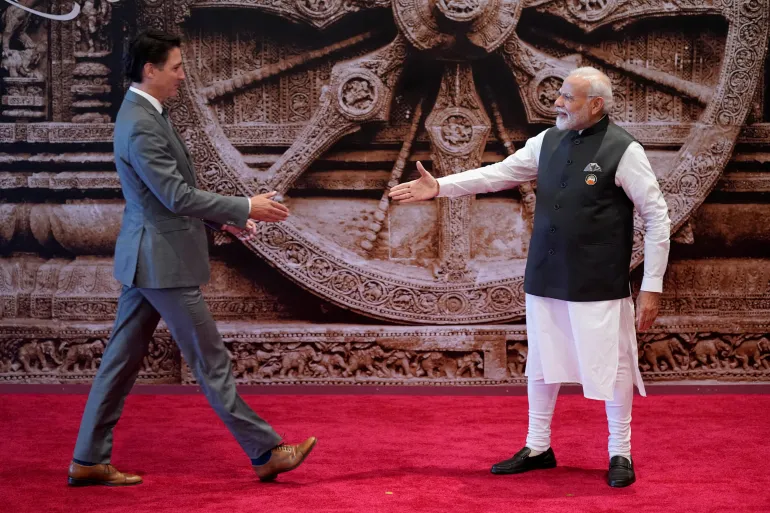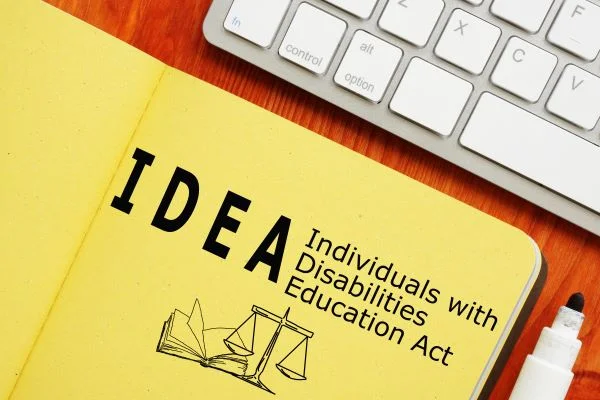In the past few years, the traditionally friendly relationship between Canada and India has deteriorated significantly, recently hitting rock bottom. This breakdown of ties was completely unexpected, as the two countries are closely connected by the large Indian diaspora in Canada. Western countries are put into a tough position between supporting either country, which are key allies of most NATO constituents. So much has happened in just a few years that it’s been hard for most to keep track of all the major events at play. Here’s a rundown of how the two Commonwealth nations’ relationship soured.

Background
The most recent tensions can be traced back to September 2023, when Canadian Prime Minister Trudeau accused India of assassinating Hardeep Singh Nijar, a Canadian citizen, in Surrey, Vancouver. Nijar supported the Khalistan movement, a separatist group aimed at establishing an independent nation for Sikhs in north-west India. Nijar himself was killed by three men on June 18, 2023.
The Khalistan movement is decades old, and was mostly based in the Punjab region of India. However, the large Sikh diaspora in Canada has attracted many of its extreme elements to seek refuge under Trudeau’s administration, and safe from India’s crackdowns on domestic terrorism.
India has accused Canada, and more specifically Trudeau’s administration of being far too lenient towards Khalistani elements in the country, Nijar, who was branded a terrorist by India in 2020, being just one. To add, Nijar was working on pro-Khalistan projects taking place in India at the time of his death.
India views the Khalistan movement as a threat to its national security, and Canada views a murder potentially carried out by the Indian government on its territory as not only a breach of sovereignty, but also of international law, as The Conversation puts it.
Aftermath of the Assassination
September of 2023 saw Canada pausing trade relations with India, and India responding by snubbing Canada at the G20 conference in New Delhi. Both countries began expelling diplomats in the same month. Reuters reports that in October of 2023, Canada withdrew 41 diplomats after India threatened to waive their diplomatic immunity and protection for their families over interference in India’s domestic affairs. Canada cited a breach of international law, but was reluctant to respond further.
In May, four suspects, all Indian nationals, were arrested as part of the Nijar investigation.
In October of 2024, Trudeau expelled and accused six Indian diplomats and the Indian High Commissioner of not only conspiring with Nijar’s assassins, but also using violent threats and coercion to glean information on pro-Khalistan elements from Canadian citizens. The Indian High Commissioner deemed this to be a politically-motivated plot to smear India’s image, and argued that there was little to no credible evidence of the Indian government’s involvement in Nijar’s murder. However, India’s High Commissioner also slammed Canada for showing leniency to violent pro-Khalistan elements in Canada, and not investigating known terrorist organizations linked with the movement. He was expelled on October 14, 2024.
U.S. Involvement
According to Al Jazeera, U.S. intelligence supposedly gave Canadian authorities evidence on India’s hand in the murder, but said evidence is still withheld from the public and press “on condition of anonymity due to the sensitivity of the information.” The U.S. has urged India to conduct its own investigation into Nijar’s assassination, and has strongly supported the Canadian investigation.
Conclusions
Until further evidence is released by U.S. intelligence and the Canadian investigation, the public can’t draw conclusions on whether the Indian government was or was not involved in the assassination. Although there are some undoubted links between India and Nijar, the investigation cannot be sustained without credible, public evidence.
Besides other factors leading to shakes in Indo-Canadian relations, the two nations would’ve had a stronger diplomatic relationship if Canada had taken the threat of violent and extreme pro-Khalistan elements in Canada more seriously. Even without the Nijar incident, that’s been the main source of animosity and tension between the two countries, with India constantly pushing for Canada to investigate potential threats to its natural security harbored within Canada’s borders.
As the Nijar investigation continues, and evidence is set to be released soon, countries allied with both Canada and India scramble to uphold their relationships with both countries. Highlighted by India’s growing economic and martial strength, and heightened tensions in hotspots like Ukraine and Taiwan, this incident will unequivocally have effects on Western diplomacy and relations with India.














































































































































